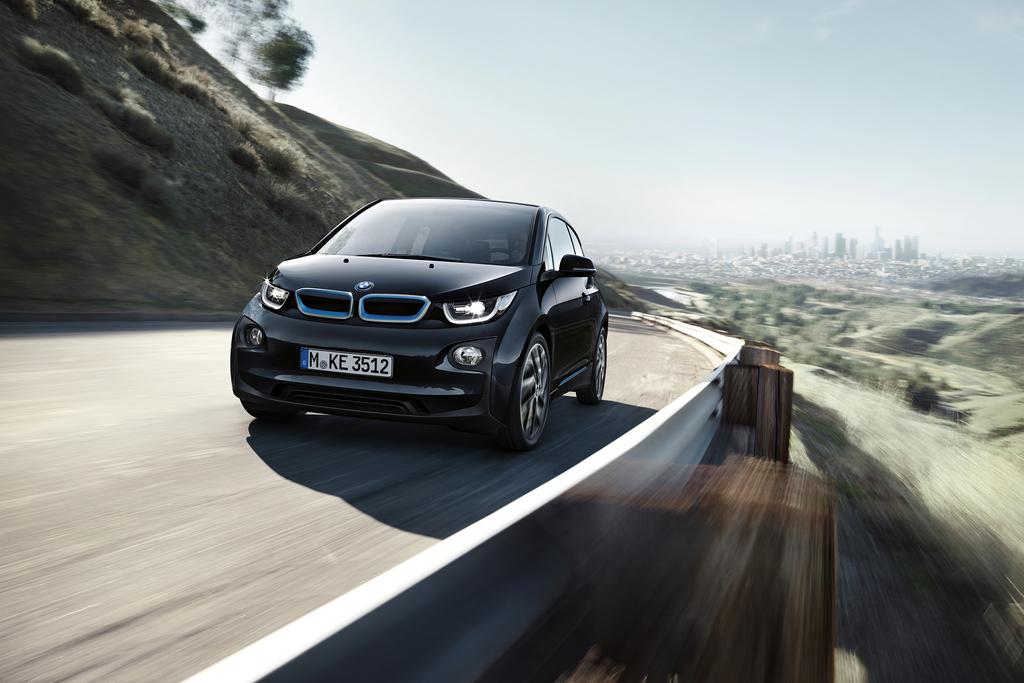
CARS.COM - Electric-vehicle manufacturers are bolstering range of current models as two affordable, long-range EVs bear down on the industry, the Chevrolet Bolt and Tesla Model 3. BMW has upgraded the battery of the funky i3 plug-in hatchback for 2017, bumping its electric range into three-figure territory - excellent by today's standards, less so by tomorrow's.
Related: 2015 BMW i3 Review
The 2017 i3's lithium-ion battery will hold 33 kilowatt-hours of energy, up from the current car's 22 kwh. BMW said testing shows the hatchback could go as far as 114 miles in combined city and highway driving. The EPA has yet to weigh in, but if their figures align with BMW's, it would represent a significant bump from the 2016 i3's 81-mile electric range. It would also beat the Nissan Leaf's recently increased range, though both hatchbacks fall well short of the distances promised by GM for the Chevrolet Bolt (200 miles) and Tesla for the Model 3 (at least 215 miles).
The i3's extra battery capacity comes thanks to additional energy density in its cells, not extra size. It shouldn't affect any space in the car's four-seat cabin, but it will impact weight; total curb weight for 2017 is up 162 pounds. A range-extender, which adds a tiny gasoline engine-generator and 2.4-gallon fuel tank to boost total range, adds another 273 pounds. That's up 170 pounds versus the 2016 i3 with its range extender.
It's unclear how much the range-extender will impact electric range for 2017. In the 2016 i3, its extra weight dropped all-electric range from 81 to 72 miles. With the extender in use the 2016 i3 turned out an EPA-estimated gas mileage rating of 39 mpg in combined city and highway driving. BMW said fuel economy testing still is underway for the 2017.
Overall performance of the 2017 is similar to 2016. The i3's electric motor makes 170 horsepower to push the rear-drive hatchback to 60 mph in the low-7-second range, or 7.8 seconds with the range extender - both figures slightly slower than the 2016 i3, though still relatively quick for an electric car.
Typical of any range increase, charging times also have gone up. BMW says the 2017 i3 takes 40 minutes to reach an 80-percent charge with a DC quick charger (versus 25 minutes before) or 4.5 hours on a Level 2 charger (versus 3.5 hours before). The automaker also includes an occasional-use charger that plugs into a regular household outlet. You can use it in a pinch, but it's a slow process; in our last i3 test car, we only added about 5 miles of range per hour with that charger.
An optional moonroof is new; last year's i3 didn't offer one. BMW said the 2017 i3 goes on sale this fall. The price is not yet announced. The 2016 i3 starts at $43,395 including destination but before any tax credits.
No comments:
Post a Comment